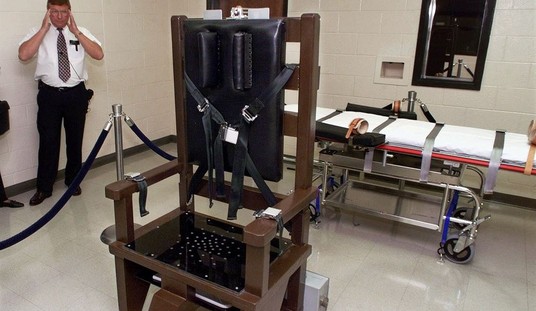Before you ask, yes… this topic was already touched upon in the Green Room yesterday. But since the comments section isn’t up and around yet, (edit: Comments are back up! Great job, tech geeks!) you may as well have the chance to weigh in along with my own, long standing take on it. Democratic rep Steve Israel came up with what may be one of the silliest ideas ever put forward in terms of restructuring American elections.
The head of the House Democratic campaign arm this week proposed a constitutional amendment that would give the winner of the popular vote in the presidential race an additional 29 electoral votes.
Rep. Steve Israel (D-N.Y.) did not offer an explanation in the joint resolution filed in the House for why he was proposing to change the way elections in the U.S. are decided.
This suggestion fails on two levels. First, if you’re going to propose an amendment to fix the electoral college, you’re admitting that it’s broken. And if you’re willing to go so far as to say that it’s not working, perhaps you should just admit that it’s not needed in the modern era.
Second, even if we are to assume that the EC is worth fixing, you should at least propose something which actually addresses its many, obvious shortcomings. The suggested solution simply seems to say, “Hey! this system ignores the popular vote. So we should give the popular vote more power!” Well, Steve, if that’s your argument then all you’re proposing is to make an already convoluted and distorted system more complicated.
I’ve opposed this appendix in the American body politic vigorously since the 2000 election, but there was never much resonance among Republicans since it would have resulted in an election loss for George W. Bush. However, we’re now seeing a situation where Barack Obama could, in theory, pull off the same dubious achievement that Bush did twelve years ago. (As I briefly noted yesterday morning.)
I’ve heard the arguments in favor of keeping the Electoral College in place. In fact, Doug Mataconis published a roundup of them this fall, including the only argument I’ve ever found persuasive, as written by Daniel Foster.
In short, the College reflects the formal and constitutional fact that the president is elected chief executive of a union of states — federated but sovereign — and not a conglomeration of people. The executive of the Constitution, of the Founders, is president of the United States, not president of America. Its detractors consider it an anachronism, but if federalism still means anything — and sadly, that’s something of an open question — then the College is as vital as ever. It affirms that we vote as citizens of the several states, not mere residents of arbitrarily drawn administrative districts.
I get that part of it. There’s a natural inclination among those who favor the original vision of states’ powers to keep hold of the idea that each state should vote as a a single entity. But that’s hardly the only reason that the founders put it in place. It was also a measure to ensure that the unwashed masses didn’t do something foolish. Further, it eased the logistical problems of reporting election results in a nation which still relied on horses to get official results transmitted over long distances. But America has grown past those problems with instant results being available to every cable TV viewer on a minute by minute basis in multicolored charts and holographs.
The people of the several states still get to elect their own representatives and nothing is changing that. The executive branch is unique, with the Oval Office resident representing everyone. And that, I think, is where even Foster’s persuasive argument falls apart. The President most certainly is not the “chief executive of a union of states — federated but sovereign — and not a conglomeration of people.” In fact, the idea of Washington being the boss of the individual states should be an idea abhorrent to most conservatives. But he is elected by the people of all the states.
As things stand now, your vote doesn’t really count unless you live in one of roughly ten states. If you live in New York or California, your vote doesn’t count. It’s going to Obama whether you like it or not. And if you live in Georgia or Alabama, your vote doesn’t count either. It’s going to Romney. And your voices are not heard by presidential candidates, They don’t visit you and they don’t pay attention to your concerns unless you live in one of those ten aforementioned states.
Other common arguments include the cry of, “National Recount!!!” (eleventy!) Why? Each state can still report their own numbers and determine how close the vote would be before a recount would be required. But instead of sending in electors with scraps of paper, they could record the total vote.
Finally, (you may applaud now, Bill Clinton fans..) what does the current system have to say on the issue of faithless electors? While no election has been overturned by them, there have been a few in the past several decades. And with the stakes this high – particularly in an electoral college vote as close as this one may well be – do you really like the odds? What if, as some observers are now speculating, Romney wins the popular vote and the electoral college vote comes down to a gap of only two or three in either direction? What if three or four “patriots” from states which have just flipped back into the red column decide that kicking out the historic figure of America’s first black president is too great a burden for history to bear and change their vote? A few slips of the pen and Barack Obama is on his way to a fully constitutionally supported second term, even if he lost both the popular vote and the EC.
This system is long past its Best Sold By date. Steve Israel is on the wrong track. He recognized that there is a problem, but the solution is to abandon a system which hasn’t served a real purpose in centuries. (And don’t even get me started on the possibility of turning over the decision to Congress – a body with an approval rating only slightly higher than foot fungus.) Let the candidates make their case to all of the American people. And let them decide national elections on a national level.
You may now fire up the torches and break out the pitchforks.








Join the conversation as a VIP Member